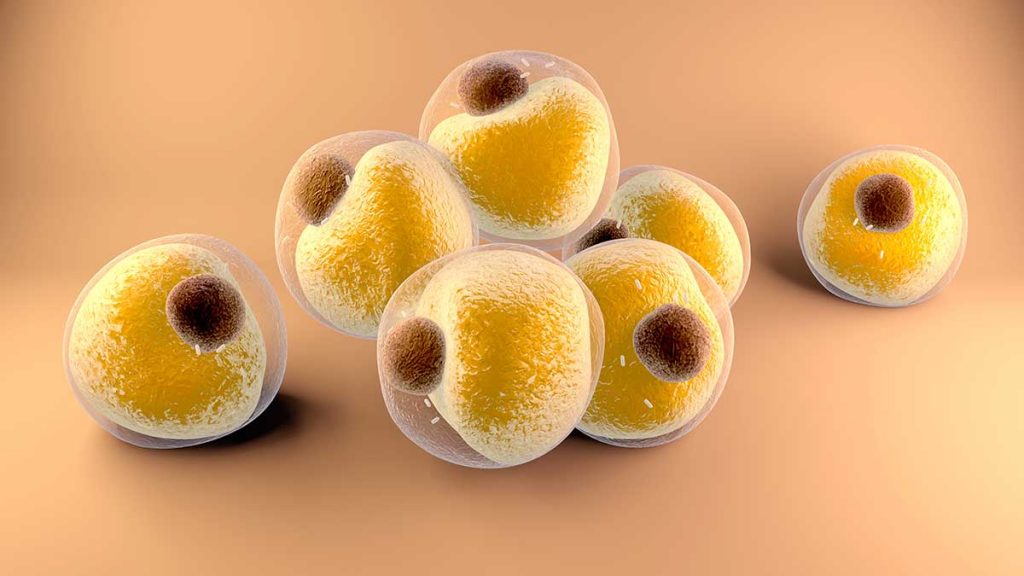Home » Fighting Falsehoods » A Low-fat Diet Will Lower Your Body Fat >> FAKE
A Low-fat Diet Will Lower Your Body Fat >> FAKE
Low-fat, Sugar-free and zero-calorie foods are not the key to weight loss, and they are definitely not the foundation of a healthy diet.

Let’s set the record straight once and for all: Low-fat, Sugar-free and zero-calorie foods are not the key to weight loss, and they are definitely not the foundation of a healthy diet.
When we cut out any food group, the fundamental question is, what are you eating in its place?
For most people in most developed nations, the problem is not fats, or carbohydrates, or proteins. The problem is the food they are eating to deliver these essential nutrients.
The Down and Dirty About Fats: There are Different Types
Dietary fat comes in the form of triglycerides. The “tri” refers to the 3 fatty acids on a glycerol backbone; how your body digests and absorbs fats is largely a matter of shape. Different fats have different shapes.
The common types of fat are:
Saturated Fats are saturated with hydrogen molecules and are typically solid at room temperature. These fats sometimes deserve their bad reputation. The American Heart Association recommends keeping saturated fat consumption to roughly 5% of your total daily calories. Saturated fats have been linked to increases in “bad” cholesterol and cardiovascular disease. The foods that contain saturated fats are predominantly animal based, such as: beef, lamb, pork, butter, cheese and other whole-milk dairy products.
Unsaturated Fats have been shown to have many positive health effects, are mainly found in plant foods and can be further broken down into monounsaturated fats and polyunsaturated fats including both omega-3 and omega-6 fatty acids.
Monounsaturated Fats have been shown to have beneficial effects on health and inflammation and are most often found in olive, peanut and canola oils, avocados, almonds, hazelnuts, pecans and seeds such as pumpkin and sesame.
Polyunsaturated Fats are considered essential fatty acids because they are not produced by the body and must be obtained from the diet. These fats are considered essential for many physiological functions and are mostly found in fatty fish, plant oils, seeds and nuts.
So, kick the saturated fat out of your diet and love forever? It’s not quite that simple, and proponents of trendy diets like keto would promptly disagree. Why?
Unpacking the Fat
Remember the fundamental question, what are you replacing the fat with? In studies where saturated fat was replaced with refined sugars, participants faired worse than they did on bacon and burgers. Of course, this is because refined sugars and processed foods are bad for your health, and not because bacon is good for you- sorry.
But what about coconut oil? This goes back to the question of shape- namely the amount of carbon molecules. Even within the subgroup of saturated fats, there are different types. As a general rule, short-chain and medium-chain saturated fats (like those found in coconut oil) tend to be better for health.
Coconut is a source of medium-chain saturated fat, and in some studies showed a positive effect on good cholesterol. But don’t go spooning down the coconut fat just yet; studies have been brief and small in sample size.
Short-chain saturated fats can be found in minimal amounts in some fermented foods and in dairy fat. We also make these fatty acids in our colon with the help of a type of fiber known prebiotics- that gut healthy fiber making headlines.
We Eat Food, Not Fat
It comes down to this: what foods are you eating? A food is more than just its fat content. For example, coconuts have many vitamins. Nuts and seeds have essential minerals that help us to function. It comes back to this, eat a variety of whole foods and remember the Greeks- everything in moderation.

